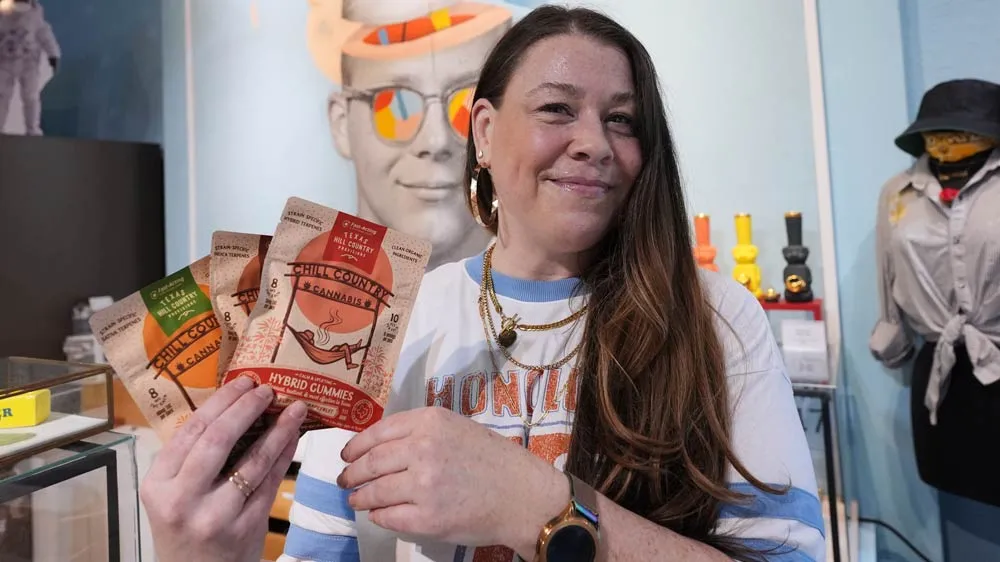February 11, 2010
U.K. Designer Alexander McQueen, 40, Kills Self
Kilian Melloy READ TIME: 3 MIN.
He was called an "enfant terrible," a reputation that derived both from his legendarily precocious talent and the controversial, challenging nature of his work. He was also derided as a "hoodlum"--and revered as a giant in the fashion world. Now one last chapter in Alexander McQueen's story has come to a close with the openly gay, 40-year-old British designer's suicide.
A week after the death of his mother, and three years after friend and mentor Isabella Blow killed herself, McQueen was found hanged in his London residence, reported a Feb. 11 article published by British newspaper The Evening Standard. Police told the media that they responded to a report from an ambulance company; a Scotland Yard spokesperson indicated that foul play had been ruled out, saying, "The death is being treated as non-suspicious."
McQueen had sent out Twitter messages about his grief following the death of his mother, Joyce, The Evening Standard Reported. A Feb. 3 tweet read, "I'm letting my followers know my mother passed away yesterday RIPmum xxxxxxxxx xxxxxxxxxxxxxxxxxx." Four days later, McQueen posted, "sunday evening been a ****ing awful week but my friends have been great but now i have to some how pull myself together."
A biography of McQueen at Fashion-Forum.org sketches out the designer's life and career. McQueen's father had been a taxi driver; born Lee Alexander McQueen, the man who would go on to rock the fashion world with collections such as the controversially named "Highlands Rape" collection, started on his career path at an early age, making clothes for his sisters. (A Wikipedia article notes that McQueen claimed to have sketched out a dress on a wall at age three.) After quitting school at 16, McQueen apprenticed himself to Anderson & Sheppard, a tailoring firm on Savile Row; he worked in the industry for years before, in 1994, he went to work at Central Saint Martins College of Art and Design, a renowned London fashion school. He subsequently became a student at the College, and saw the collection he designed as the final project for his Master's degree purchased by Blow, who thus gave his career as a designer a running start.
McQueen had a tumultuous stint at Givenchy from 1996-2001, drawing more controversy for dressing a legless model and sending her up the catwalk with the use of a pair of carved wooden prosthetics in 1998. But controversy didn't seem to hinder McQueen's career: he dressed dignitaries such as Mikhail Gorbachev and Prince Charles, and was honored four times as the "British Designer of the Year," as well as receiving the honor of being named "International Designer of the Year."
"He was a talent who was beyond others," said Sue Whitely, who once served as the CEO of McQueen's design firm. "People who worked with him would give 100 per cent and more because he was totally inspiring.
"This is an unimaginable loss for the fashion world," continued Whitely. "He was able to bring creativity to whatever he turned his hand to, from perfume bottles to every piece of clothing. It is a dark, dark day. He was a British icon in fashion whose loss is unimaginable."
Vogue editor Alexandra Shulman said, "He was the most brilliant designer of his generation and his influence can be seen in the way that women dressed over the last 15 years. It is an incredible loss not only for British fashion but for fashion the world over."
McQueen was not shy about his sexuality, telling the media in 2002, "I came out really young. I was never in [the closet]. I was sure of myself and my sexuality and I've got nothing to hide. I went straight from my mother's womb onto the gay parade." (The Evening Standard was more circumspect, omitting mention of McQueen's homosexuality.)
The designer's death took place a mere week before this year's edition of London Fashion Week.
Kilian Melloy serves as EDGE Media Network's Associate Arts Editor and Staff Contributor. His professional memberships include the National Lesbian & Gay Journalists Association, the Boston Online Film Critics Association, The Gay and Lesbian Entertainment Critics Association, and the Boston Theater Critics Association's Elliot Norton Awards Committee.






